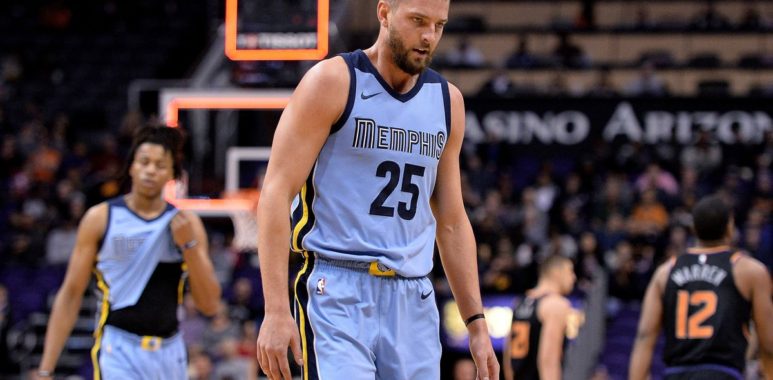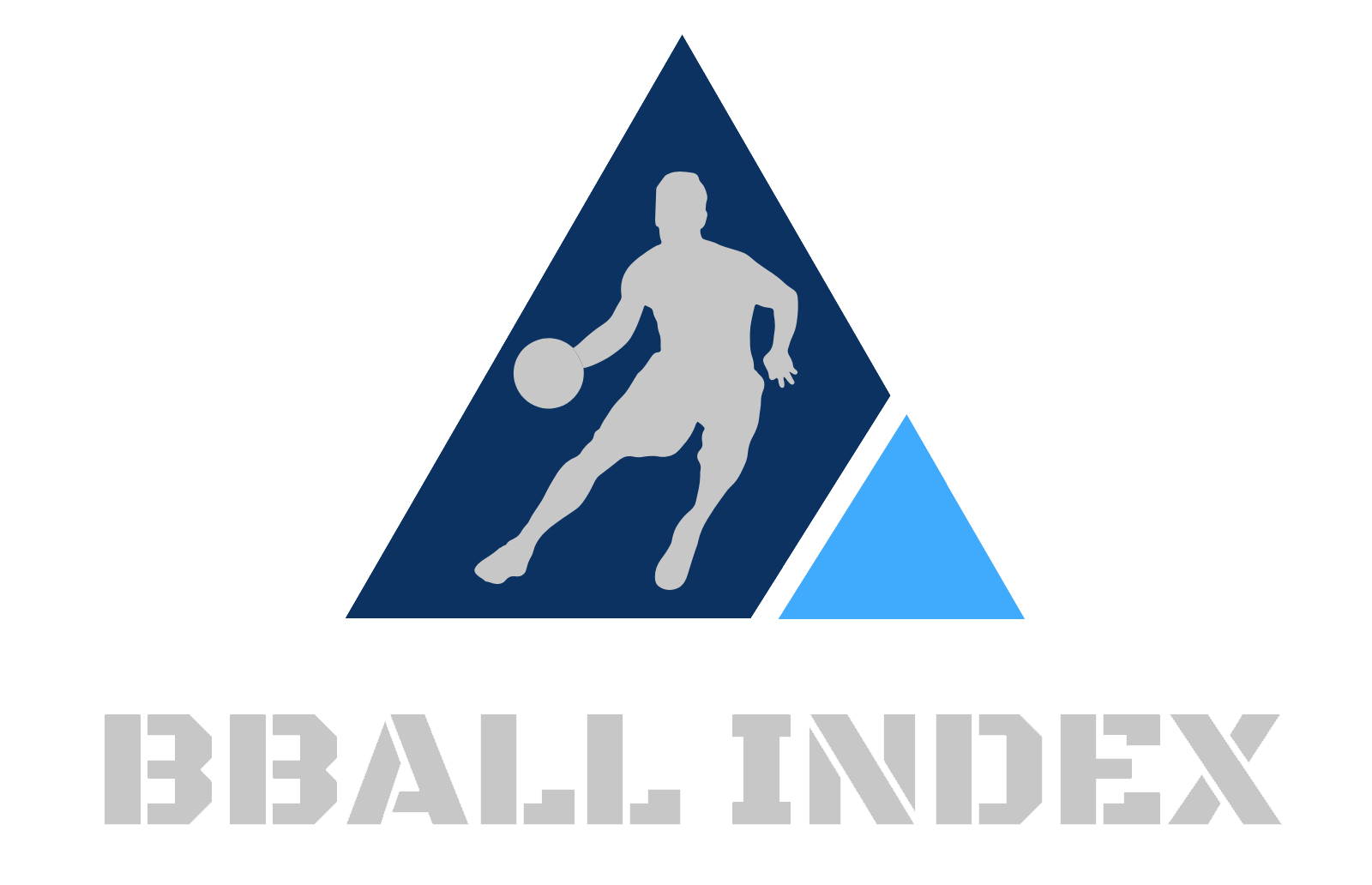
Stop Trying to Trade Chandler Parsons
Chandler Parsons, for a moment, was a hot topic on Grizzlies Twitter. The rationale seemed to be that the offense desperately needs help, and Parsons would inexplicably be appealing salary filler in any trade. Misguided fantasies about flipping Parsons and Jaren Jackson Jr. for someone like Bradley Beal became a popular hypothetical.
Stop. Knock it off. If I knew how to put that Jordan GIF into this article I’d do it, but alas I’m a 70 year old trapped in a 30 year old’s body that more so than not hates technology. But trading the Parsons contract is not only managerial malpractice, but horribly unrealistic.
First of All
Stop putting JJJ in fake trades. Yeah, someone like Beal fits the Gasol/Conley timeline better. But Memphis is a small market, non-destination for free agents. We’re 26 games into the Grizzlies having a 19 year old unicorn. The likes of Andrew Sharp and Ben Golliver can’t stop drooling over “Jaren,” and justifiably so. Every time I go on Twitter someone else has posted a Basketball-Reference query showing that David Robinson, Shaquille O’Neal, and Hakeem Olajuwon are the only other players besides JJJ in history to post X,Y, and Z their rookie seasons.
Seriously, what the hell are we doing here?
Sunk Cost
Memphis forayed into the ill-fated summer of 2016 thanks to the cap spike. The Grizzlies won’t ever be a destination franchise. But with a wad of cash gifted to them by the players association, Memphis decided to strike. They reached a four-year, $94.4 million pact with Parsons.
The contract has been nothing short of a disaster. In two and a third seasons since, Parsons has played 73 games total. There is a fair argument to be made it’s the biggest albatross contract in the league. In a summer famous for the contracts of Luol Deng, Timofey Mozgov, and Joakim Noah, Parsons and the Grizzlies have managed to fly under the radar for agreeing to perhaps the worst deal of them all.
Before the season started, Parsons was owed $49.2 million, and after this year he will have $25.1 million remaining. The cost of moving him is simply untenable. They could stretch the final year, incurring $8.4 million cap hits over three seasons. I’m not a proponent of using the stretch provision unless there is a clear benefit. You cannot undo a stretch. You cannot attach draft picks to those three years of dead money to wash them off your books. In a league where flexibility is paramount, stretching a contract is the kid in gym class that can’t reach the box for the sit and reach test (I was that kid, so it’s ok for me to poke fun at that kid).
The Lakers stretched the final season of the Deng contract, and “coincidentally” Los Angeles will have $38.2 million in cap room the summer that Kevin Durant’s new starting salary on the open market will be $38.2 million. That is a tangible benefit to stretching dead money. Otherwise, just eat the deal.
2019 Cap Outlook
So is there any benefit to stretching Parsons? Not really. The 2019-2020 cap is projected to be $109 million. Memphis has ~$99.1 million of guaranteed salary for next season if Marc Gasol picks up his $25.6 million player option. The team will want to bring Dillon Brooks back, another $1.6 million. That’s $100.7 million of committed salary from just six contracts, and we haven’t even addressed any cap holds or incomplete roster charges.
JaMychal Green and Garrett Temple each have eight figure cap holds which would need to be declined if Memphis wants to get into free agency. Both players are key cogs on this year’s team, so saying goodbye to both may be difficult. Shelvin Mack’s cap hold will only be $1.6 million, a great value for someone providing some of the best backup point guard minutes in the league this year.
But if Memphis declines all their cap holds, as well as moving on from the non-guaranteed contracts of Ivan Rabb and Jevon Carter, then there is a path to cap space for the Grizzlies. It’s just not clear it’s worth it.
Step one would be stretching Parsons, and incurring $8.4 million hits over the next three seasons. That opens $16.7 million in room in the summer of 2019. Working with our previous figure of $100.7 million of committed salary we are now done to $84 million. Step two would be approaching Gasol about an “opt-out make-good” deal. Gasol would opt out of his player option to knowingly re-sign with Memphis at a lower annual value on a multi-year deal that affords him more guaranteed money in the long run.
For example, Gasol opts out of his $25.6 million player option to re-sign on a three-year, $45 million contract. Memphis opens $10.6 million in cap room, while Gasol locks in another $20 million guaranteed at age 34.
Step three is waiving all the cap holds. This leaves five roster spots accounted for, resulting in seven incomplete roster charges. After doing all of the math Memphis would have $79.6 against the books, resulting in $39.4 million in cap space. That’s a large number, and certainly seems worth it to chase free agents. But who is coming to Memphis?
2019 Free Agent Class
Let’s just go ahead and say neither Durant nor Kawhi Leonard will be taking their talents to Memphis. Let’s rule out Jimmy Butler, Kyrie Irving, and Klay Thompson as well. That leaves two main targets to make all this worth it: Tobias Harris and Khris Middleton.
Even still we have a problem. Tobias Harris is a power foward. He may be the best third tier star on the market, but he would be a part of a three-man big rotation with Gasol and JJJ. That isn’t the best use of a max player, and presumably is not the situation which Harris desires.
Plus he will have other suitors, and if the Clippers land Durant or Kawhi, why would Harris even leave if Los Angeles wants him to be the secondary star?
Middleton would be a god-send for Memphis. He is the extra fire power the team needs, especially as a three-point shooter. He plays a position that does not overlap with Conley, Gasol, or JJJ. But is Middleton really going to leave a small market in the East that has Giannis for a small market in the West that doesn’t have Giannis?
There are role players and moves around the margins the Grizzlies can make with any cap space they create. Maneuvering your way to signing Wayne Ellington for some bench scoring is nice. Moving Heaven and Earth to open up $39.4 million to sign Wayne Ellington and Michael Kidd-Gilchrist is a failure.
The Price of Moving Parsons
Back to the actual point. Parsons is 26 games into the $49.2 million on his final two years. Just how many draft picks are we talking about here to get off this deal?
TL;DR: A lot.
Toronto traded the 29th pick to get off DeMarre Carroll’s remaining $30.2 million, and Carroll is viewed as a viable rotation player/starter, not dead money. Atlanta ended up with the 30th pick to eat the remaining $14.2 million guaranteed on Jamal Crawford’s contract (the two sides reached a buyout agreement for less). Denver gave up a top 12 protected first to dump the combined $21.2 million of Kenneth Faried and Darrell Arthur.
This contract would take multiple firsts to move ahead of the trade deadline. Memphis already owes a future first to Boston, so the team is in no position to be shipping out multiple future firsts as is. Plus, by the time those firsts are actualized due to the Stepien rule, Conley, Gasol, or both could have fallen off a cliff, making those picks land in the high lottery. Not prudent team building.
The idea Parsons and some picks is going to land you Bradley Beal is not an idea based in reality. Multiple firsts will be required to dump this contract, and is in no way going to be involved in adding a third star to Conley and Gasol. Giving up the picks to move the contract isn’t worth it. The opportunity cost to open the cap space isn’t worth it for Memphis if the team sets realistic expectations. The contract is terrible. It is what it is. Just eat the deal.
